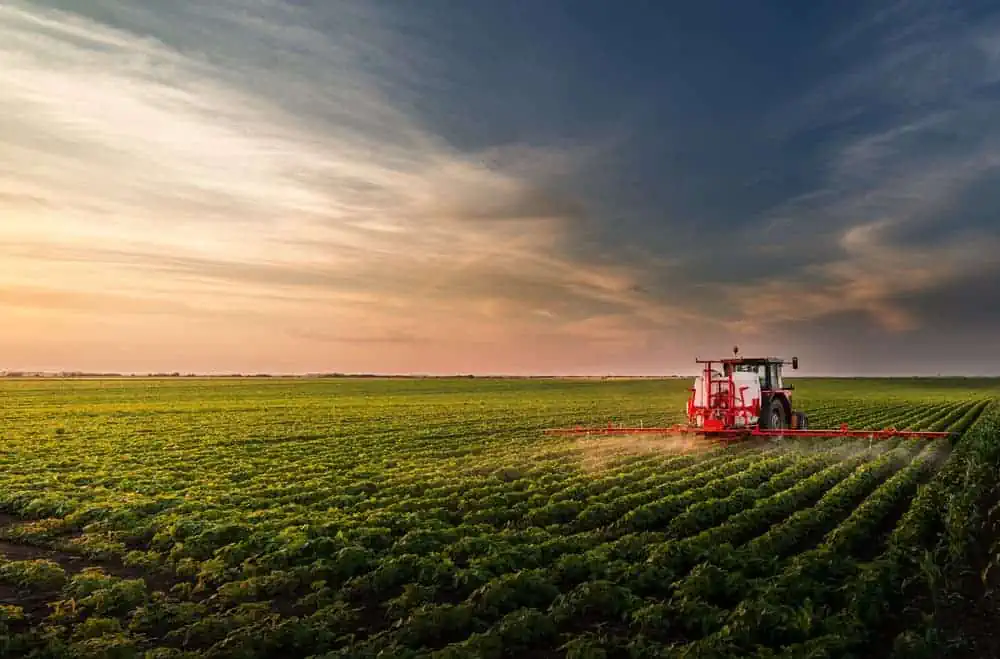What Is Paraquat Used For?
- Last Updated: July 27th, 2023

Attorney Jessica Paluch-Hoerman, founder of TruLaw, has over 28 years of experience as a personal injury and mass tort attorney, and previously worked as an international tax attorney at Deloitte. Jessie collaborates with attorneys nationwide — enabling her to share reliable, up-to-date legal information with our readers.
Legally Reviewed
This article has been written and reviewed for legal accuracy and clarity by the team of writers and legal experts at TruLaw and is as accurate as possible. This content should not be taken as legal advice from an attorney. If you would like to learn more about our owner and experienced injury lawyer, Jessie Paluch, you can do so here.
Fact-Checked
TruLaw does everything possible to make sure the information in this article is up to date and accurate. If you need specific legal advice about your case, contact us by using the chat on the bottom of this page. This article should not be taken as advice from an attorney.
What Is Paraquat Used For?
Paraquat, which is also known by the brand name Gramoxone, is a highly toxic chemical herbicide.
Worldwide, it has been one of the most widely used chemicals for controlling weeds since the 1950s, particularly in agricultural settings.
Additionally, it is also used to dry out crops, such as cotton, to ready them for harvest.

However, because this substance is toxic and potentially lethal to humans who ingest it, the United States Environmental Protection Agency (EPA) has placed strict limitations on the use of paraquat.
No products containing paraquat are approved for use by homeowners, and application in residential areas is prohibited.
Paraquat-containing products may only be used by trained, licensed applicators.
Many underdeveloped countries have few or no restrictions on the use of paraquat products, and they are popular in these locations because they are both effective and inexpensive.
However, some nations are even more strict than the U.S. The European Union, for example, has banned paraquat since 2007.
Table of Contents
How Does Paraquat Work as an Herbicide?
Paraquat has been used as a commercial herbicide since 1962, when it was introduced to the market under the trade name Gramoxone.
Today, paraquat is used in a variety of solutions of different strengths for controlling grasses and weeds.
Paraquat is what is known as a non-selective contact herbicide.
This means that it does not just work to eliminate only certain types of plants, but rather acts against all species of plant material that it comes into contact with.
It is fast-acting, killing annual grasses, broad-leaved weeds, and the tips of established perennial weeds.
Contact with the soil partially activates paraquat, and it is rainfast (impervious to being washed away by rainfall) within minutes of being applied.
The resilience and broad-spectrum nature of this chemical mean that it can be used to clear areas such as railways and industrial sites of plant growth.
The active mechanism of paraquat works as an herbicide by inhibiting plants’ capacity to conduct photosynthesis.
This is useful not only for killing and clearing plants, but also for plant desiccation in advance of the harvest of crops like cotton, legumes, and flax.
Paraquat and No-Till Farming
Many farmers use paraquat as a “burndown” so they can conduct no-till farming.
This means that they apply a paraquat product to their soil before planting certain crops to kill small weeds without having to till their fields.
Farmers elect to do this because they believe it reduces erosion, saves fuel, saves moisture, and increases labor efficiency.
Paraquat and Herbicide-Resistant Weeds
Over time and after repeated exposure, many weed species have developed resistance to a large number of herbicides.
Studies have shown that paraquat is one of the few chemical treatments that can help mitigate or even prevent issues with these herbicide-resistant weeds, especially when used in combination with other herbicides.
Restrictions on Paraquat Products
The federal government has several restrictions in place to prevent severe illness or death from the ingestion of paraquat.
All paraquat products can only be used by those who are certified applicators.
While many other restricted-use products may be used by uncertified people who are working under the supervision of a certified applicator, this is not the case with products containing paraquat.
 Those who handle a paraquat product must never transfer it to a container that is normally used for food, drink, or any other purpose.
Those who handle a paraquat product must never transfer it to a container that is normally used for food, drink, or any other purpose.
The EPA has new packaging requirements that are intended to help keep this from happening.
Certified applicators must secure paraquat products so that children and other unauthorized individuals cannot gain access to them.
Products containing paraquat must never be stored or used in home gardens, residential areas, schools, playgrounds, recreational parks, or golf courses.
While ingestion is often the immediate point of concern, exposure of the skin or eyes to paraquat also carries severe health risks.
As such, there are certain measures to take to prevent severe illness or death from this kind of exposure.
This includes diligently following the instructions on the label and using the specified personal protective equipment during use.
Paraquat and Parkinson’s Disease
Many scientists believe that there is a strong link between exposure to paraquat and a twofold increased risk of developing Parkinson’s disease.
Because of this connection, there is currently an ongoing Multidistrict Litigation (MDL) class action against manufacturers of paraquat products on behalf of Parkinson’s disease patients who were exposed to paraquat.
As of April 2022, 982 paraquat lawsuits are a part of the MDL, and that number is growing as more people learn about the potential links between Parkinson’s and paraquat.
TruLaw and its attorneys are investigating this today.
Use our instant Case Evaluation tool to learn if you are eligible to file a lawsuit against the manufacturer of paraquat today.

Managing Attorney & Owner
With over 25 years of legal experience, Jessica Paluch-Hoerman is an Illinois lawyer, a CPA, and a mother of three. She spent the first decade of her career working as an international tax attorney at Deloitte.
In 2009, Jessie co-founded her own law firm with her husband – which has scaled to over 30 employees since its conception.
In 2016, Jessie founded TruLaw, which allows her to collaborate with attorneys and legal experts across the United States on a daily basis. This hypervaluable network of experts is what enables her to share the most reliable, accurate, and up-to-date legal information with our readers!
Here, at TruLaw, we’re committed to helping victims get the justice they deserve.
Alongside our partner law firms, we have successfully collected over $3 Billion in verdicts and settlements on behalf of injured individuals.
Would you like our help?
At TruLaw, we fiercely combat corporations that endanger individuals’ well-being. If you’ve suffered injuries and believe these well-funded entities should be held accountable, we’re here for you.
With TruLaw, you gain access to successful and seasoned lawyers who maximize your chances of success. Our lawyers invest in you—they do not receive a dime until your lawsuit reaches a successful resolution!
AFFF Lawsuit claims are being filed against manufacturers of aqueous film-forming foam (AFFF), commonly used in firefighting.
Claims allege that companies such as 3M, DuPont, and Tyco Fire Products failed to adequately warn users about the potential dangers of AFFF exposure — including increased risks of various cancers and diseases.
Depo Provera Lawsuit claims are being filed by individuals who allege they developed meningioma (a type of brain tumor) after receiving Depo-Provera birth control injections.
A 2024 study found that women using Depo-Provera for at least 1 year are five times more likely to develop meningioma brain tumors compared to those not using the drug.
Suboxone Tooth Decay Lawsuit claims are being filed against Indivior, the manufacturer of Suboxone, a medication used to treat opioid addiction.
Claims allege that Indivior failed to adequately warn users about the potential dangers of severe tooth decay and dental injuries associated with Suboxone’s sublingual film version.
Social Media Harm Lawsuits are being filed against social media companies for allegedly causing mental health issues in children and teens.
Claims allege that companies like Meta, Google, ByteDance, and Snap designed addictive platforms that led to anxiety, depression, and other mental health issues without adequately warning users or parents.
Transvaginal Mesh Lawsuits are being filed against manufacturers of transvaginal mesh products used to treat pelvic organ prolapse (POP) and stress urinary incontinence (SUI).
Claims allege that companies like Ethicon, C.R. Bard, and Boston Scientific failed to adequately warn about potential dangers — including erosion, pain, and infection.
Bair Hugger Warming Blanket Lawsuits involve claims against 3M — alleging their surgical warming blankets caused severe infections and complications (particularly in hip and knee replacement surgeries).
Plaintiffs claim 3M failed to warn about potential risks — despite knowing about increased risk of deep joint infections since 2011.
Baby Formula NEC Lawsuit claims are being filed against manufacturers of cow’s milk-based baby formula products.
Claims allege that companies like Abbott Laboratories (Similac) and Mead Johnson & Company (Enfamil) failed to warn about the increased risk of necrotizing enterocolitis (NEC) in premature infants.
Here, at TruLaw, we’re committed to helping victims get the justice they deserve.
Alongside our partner law firms, we have successfully collected over $3 Billion in verdicts and settlements on behalf of injured individuals.
Would you like our help?








